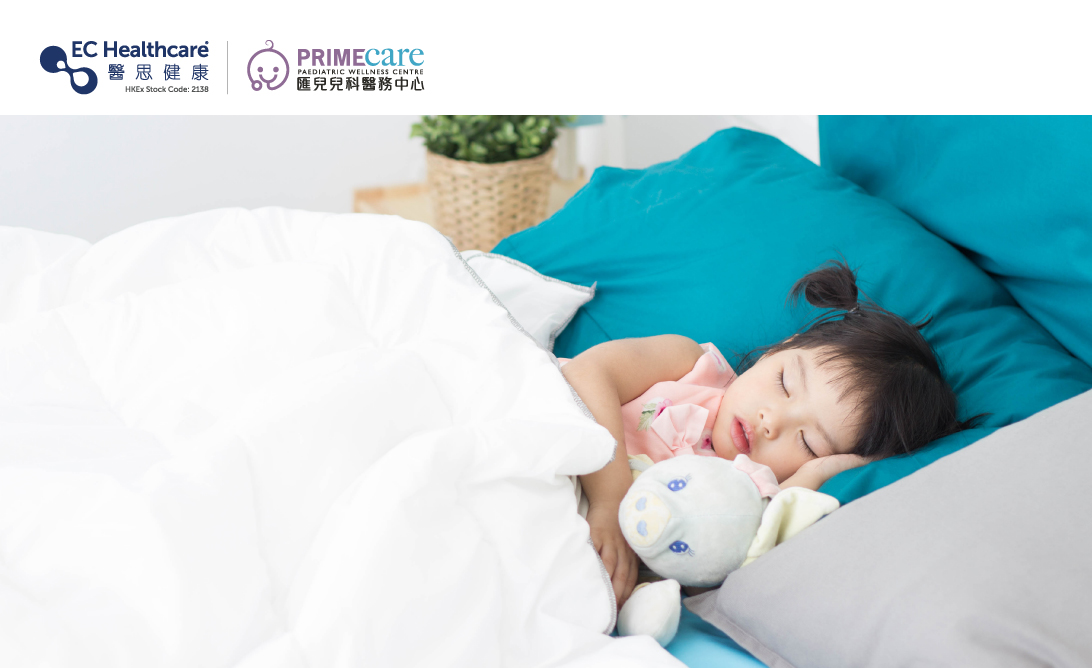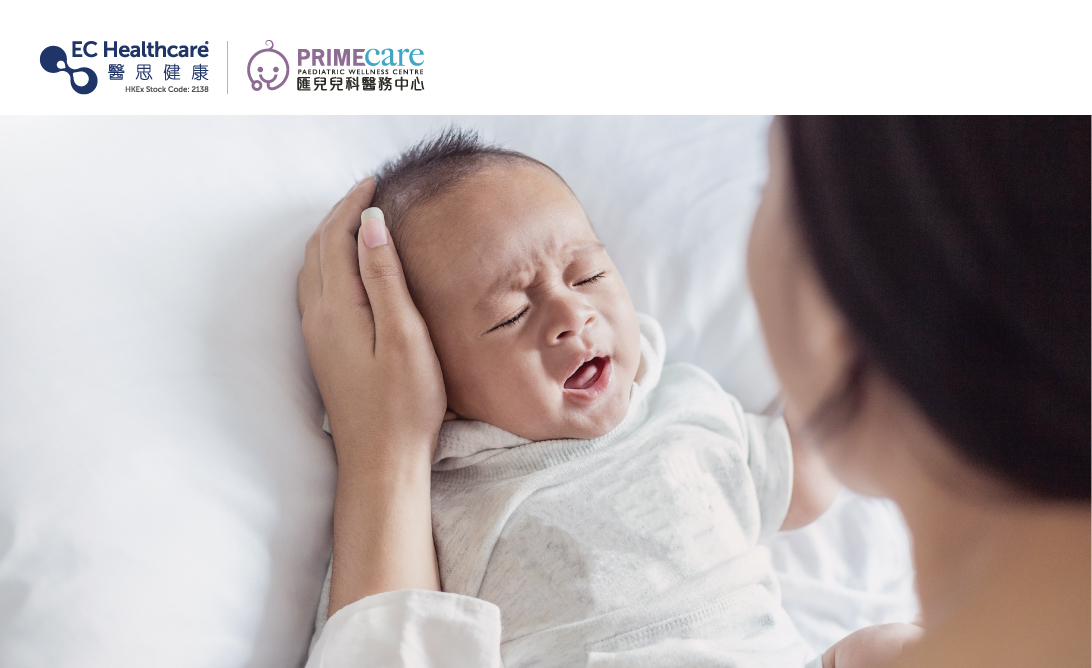Don't Underestimate Snoring in Children: It Could Be a Sign of Sleep Apnoea


Some parents may find their children snoring while they sleep, thinking that it's just a sign of deep sleep. But it could be actually a symptom of sleep apnoea. Many children in Hong Kong have persistent snoring problems, and some of them suffer from sleep apnoea. This condition not only affects their daily lives but can also be life-threatening in severe cases, therefore should never be ignored. In this blog, we will explore 6 possible causes of sleep apnoea in children and suggest corresponding prevention and treatment methods to protect their health.
Cause 1: Allergic rhinitis and swollen nasal mucosa
This condition is usually related to allergies. If your child often experiences allergy symptoms such as a runny or stuffy nose, itchy nose or sneezing, it can lead to unstable airflow in the throat and nose, resulting in snoring.
Prevention/Treatment: Parents can bring their children to a doctor to diagnose any allergies, and receive appropriate treatments such as sublingual immunotherapy or using nasal sprays. Meanwhile, children can use nasal strips to improve airflow in the nose and reduce snoring.
Cause 2: Mouth breathing
If children often breathe through their mouths, their tongues may fall backwards and block the airway, leading to snoring during sleep.
Prevention/Treatment: Teach children the correct way to breathe and encourage them to breathe through their nose. If children have already developed a habit of mouth breathing, parents can take some measures to help correct their way of breathing, such as using a mouthguard.
Cause 3: A small jaw
If children have a narrow jaw, their tongue may fall backwards and block the airway, leading to snoring during sleep.
Prevention/Treatment: Parents should pay more attention to their child's jaw development when they are young. If their child's jaw is too narrow, they should seek timely medical attention and take appropriate treatment measures. If the narrow jaw has already caused snoring during sleep, using a mouth guard or surgery may be considered.
Cause 4: Narrow nasal passages
If children have narrow nasal passages due to a deviated septum, turbinate hypertrophy, or other reasons, it can affect their normal breathing.
Prevention/Treatment: Pay attention to keeping the nasal passages clean and avoid inhaling harmful substances such as second-hand smoke. For children with problems such as a deviated septum or turbinate hypertrophy, parents should take them to the hospital for timely medical treatment. The treatment methods for narrow nasal passages mainly include surgery and medications. For severe problems like a deviated septum or turbinate hypertrophy, maxillary expansion surgery is a common treatment option. For patients with general narrow nasal passages, symptoms can be relieved through medication or with the use of nasal dilators and other devices.
Cause 5: Enlarged tonsils
The tonsils are tissues located between the mouth and throat that prevent bacterial and viral infections. However, enlarged tonsils can obstruct the airway, leading to snoring during sleep.
Prevention/Treatment: Parents are advised to bring their child to a doctor when they experience symptoms such as difficulty breathing or dry mouth to avoid inflammation and swelling of the tonsils. If the tonsils are already inflamed and enlarged, the doctor may recommend surgery to remove them.
Cause 6: Issues in other body parts
Apart from the above causes, other reasons may also cause snoring in children, including problems with bone, muscle, and soft tissue structures. These problems may be caused by heredity, trauma, disease, etc.
Prevention/Treatment: Children who snore due to these reasons are advised to undergo regular medical check-ups and receive appropriate treatment according to the doctor's advice. The treatment methods vary depending on individual circumstances and need to be determined based on the child's specific condition. A continuous positive airway pressure (CPAP) machine is usually used to help patients breathe normally.
Many people think that snoring in children is a normal phenomenon, but it could actually be a warning sign of sleep apnoea. If left untreated, it could increase the risk of developing hypertension and cardiovascular disease. Therefore, parents should pay attention to their children's sleep conditions and seek prompt medical attention when they notice any abnormalities.
If parents are concerned about their child's sleep problems, they can visit the Primecare Paediatric Wellness Centre for sleep apnoea assessment and treatment. The sleep apnoea test "polysomnography" (PSG) monitors the patient’s sleep to collect data such as brain waves, eye movements, muscle movements, blood oxygen levels, and snoring sounds for diagnosis.
Primecare Paediatric Wellness Centre’s home sleep test procedures:
1.Make an appointment with the doctor for consultation and arrange a date for the test.
2.Sleep technicians will visit at night to conduct the test.
3.A designated person will collect the testing equipment the next morning.
4.After collecting the sleep data, the doctor will thoroughly analyse the patient’s sleep condition and make a diagnosis based on the apnoea-hypopnea index (AHI).
5.During the follow-up visit, the doctor will explain the test report in detail and recommend further treatment options.
An overnight sleep test can accurately identify sleep apnoea and other serious conditions in children. The test uses multiple devices to monitor the child's brain waves, nasal and oral airflow, and chest and abdomen movement while they sleep. Children of any age can undergo this test, and the test will not cause any harm to the body.







